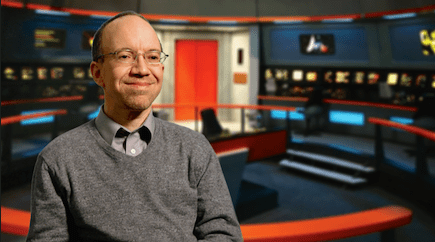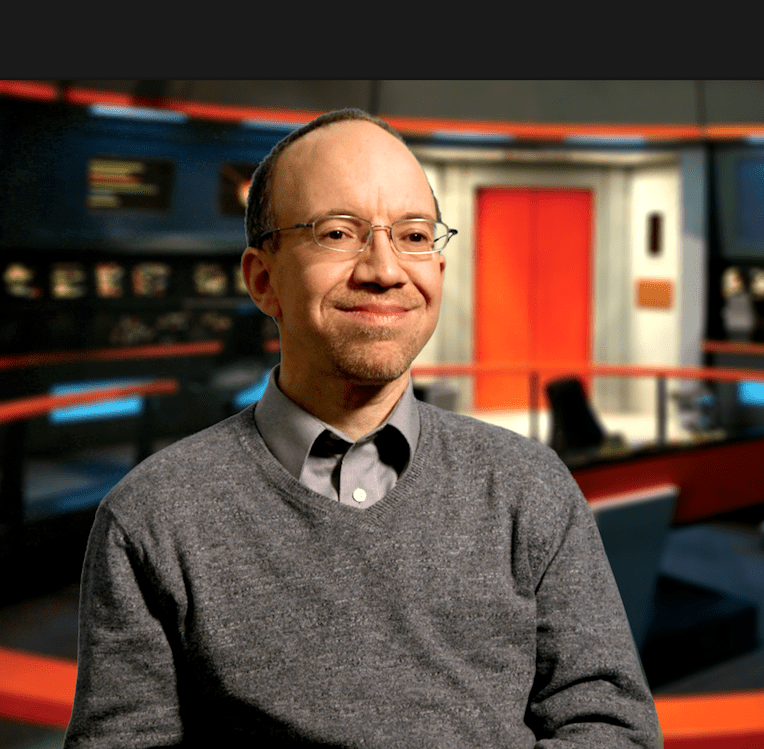I spotted two research opportunities related to “Everyday Cyborgs 2.0” and wanted to share those with blog readers. I’ll have multiple podcasts in the coming month or so related to the intersection of religion and technology, and of course I’m actively interested in this topic as it relates both to the present day and near future, as well as to the more speculative imagined future science fiction envisages. Here are the details:
We are now recruiting two Research Fellows to work on an exciting research project titled Everyday Cyborgs 2.0: Law’s Boundary-work & Alternative Legal Futures at the University of Birmingham. There will be three Research Fellows on the project, with the third being recruited in Autumn 2020.
Everyday cyborgs are persons with attached and implanted medical devices; e.g., joint replacements, pacemakers, insulin pumps, and limb prostheses. Increasingly, these devices are smart devices. They run software and have wifi capabilities. They collect, analyse, and transmit data. However, their integration with persons creates difficulties for the law. Unanswered questions include:
- (1) Should internal medical devices which keep the person alive be viewed as part of the person or mere objects (or something else)?;
- (2) Is damage to neuro-prostheses personal injury or damage to property?;
- (3) Who ought to control/own the software in implanted medical devices?; and
- (4) How should the law deal with risks around unauthorised third party access and hacking?
Building on preliminary research, the project team will answer such questions, using written documents, interviews, and focus groups to better understand the challenges, and test a series of imagined legal futures to assess what is practically possible and suggest solutions. The research will draw on literatures and methods from a range of disciplines, including law and policy, regulatory and governance studies, political theory, philosophy, sociology, and science and technology studies (STS).
Research Fellow 1 is offered for five years, starting on 1st September 2019. The person appointed will have a regulatory theory/governance studies background (but may draw from any number of disciplines: e.g. law, political science, philosophy, STS, etc.). The fellow will focus mainly on the conceptual and normative components of the project.
Research Fellow 2 is offered for four years, starting on 1st September 2019. The person appointed will have a socio-legal or other relevant empirical background and will focus on mapping and exploring the regulatory landscape, as well as working on the interviews, focus groups, and scenario/vignette testing.
Both fellows will be expected to initiate and conduct original research, plan, and coordinate research activities and programmes, publish the results of their own research, supervise PhD students, and contribute to knowledge transfer, public engagement or similar activities in the School of Law.
Candidates are expected to have a higher degree relevant to the research area or equivalent qualifications. An ability to work across disciplinary boundaries will be a distinct advantage. It is expected that the successful candidate will have Broad experience of, and an interest in, regulatory theory and governance studies.
Informal enquiries are welcome and encouraged. Potential applicants should contact the project’s Principal Investigator Professor Muireann Quigley at [email protected].
Deadline for applications: 19th March 2019
Interviews will be held in April 2019
Click through for more details in pdf form, and in the openings listed on the University of Birmingham website.
Also related to technology present and future, there was a bit of news yesterday that really caught my eye. If it were April 1, I would have been skeptical. But it looks like we really have made another step in the direction of the future science fiction imagines. There is now a tablet that folds up to fit in your pocket – or rather, a phone that unfolds into a tablet. I’m not sure there’s a different between those two categories. It’s called the Galaxy Fold. It will be available in April, will cost nearly $2,000, and is an Android device, and so I’m not rushing out to get one. But I’m sure there will be an iOS device of a similar sort in the not too distant future, and that they will also come down in price.
For those who may be wondering, the series related to Rob Orlando’s movies about Paul the Apostle will continue soon. In the meantime, I’ll connect this post with him by mentioning that, in addition to everything else, he is also a science fiction fan. And when he interviewed me while working on his movie Apostle Paul: The Final Verdict, in front of a green screen, I mentioned how cool it would be if he could place me on the bridge of a starship. Rob has never disappointed me yet. Here’s what he came up with:















